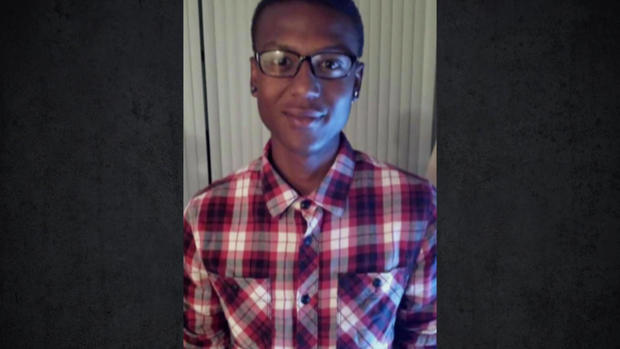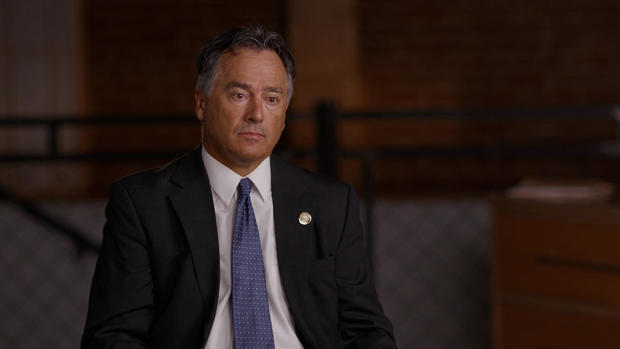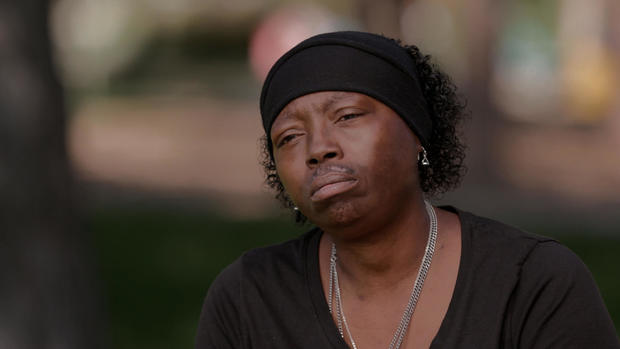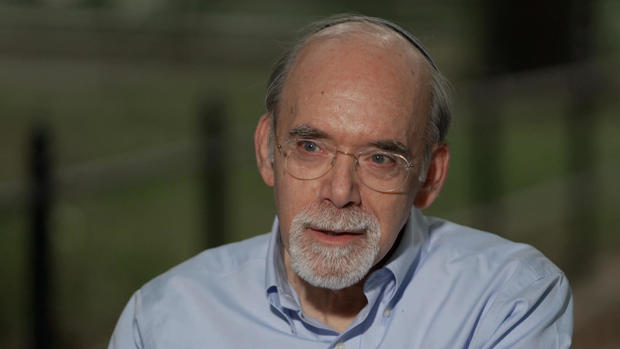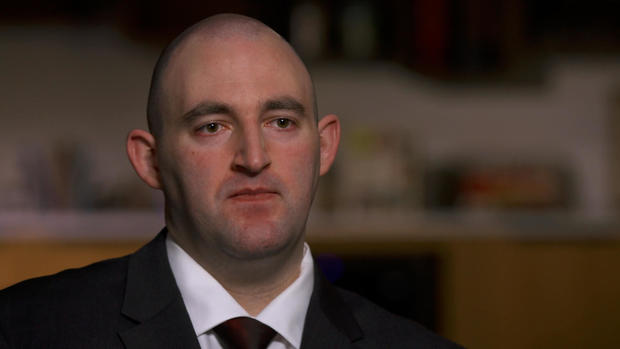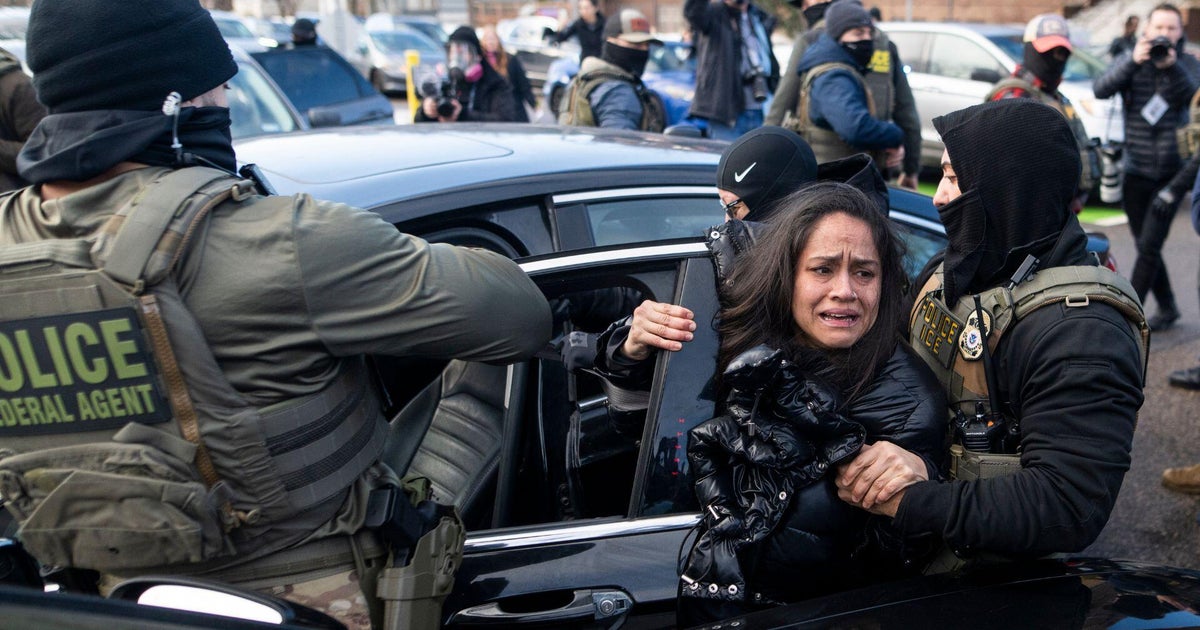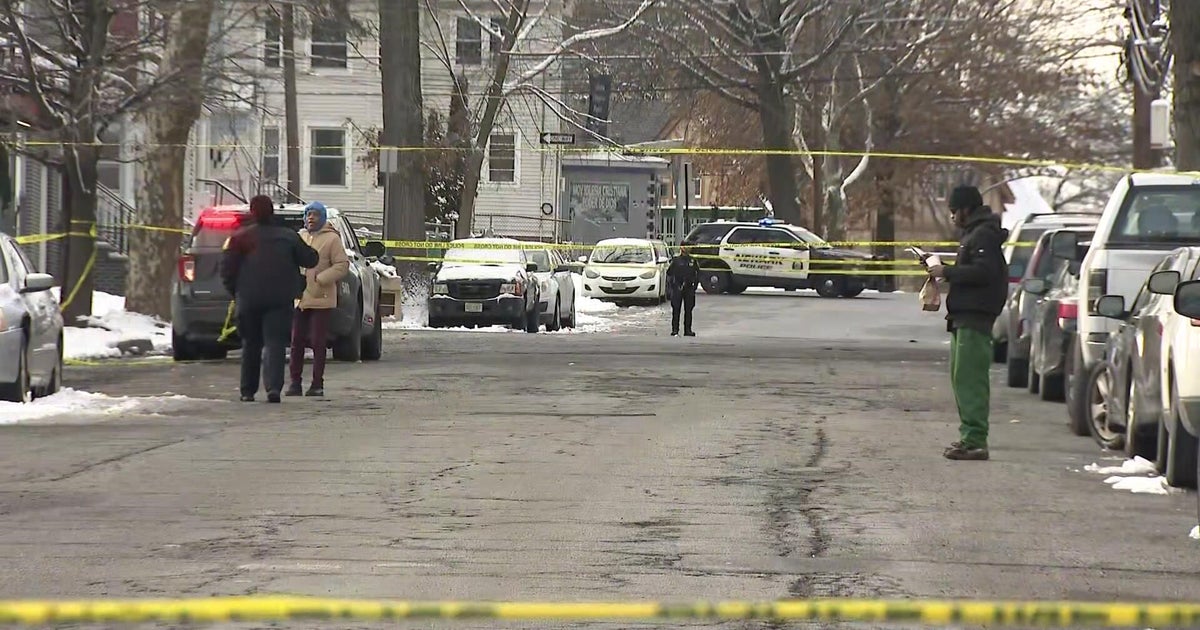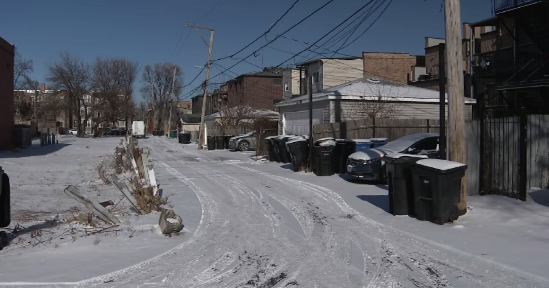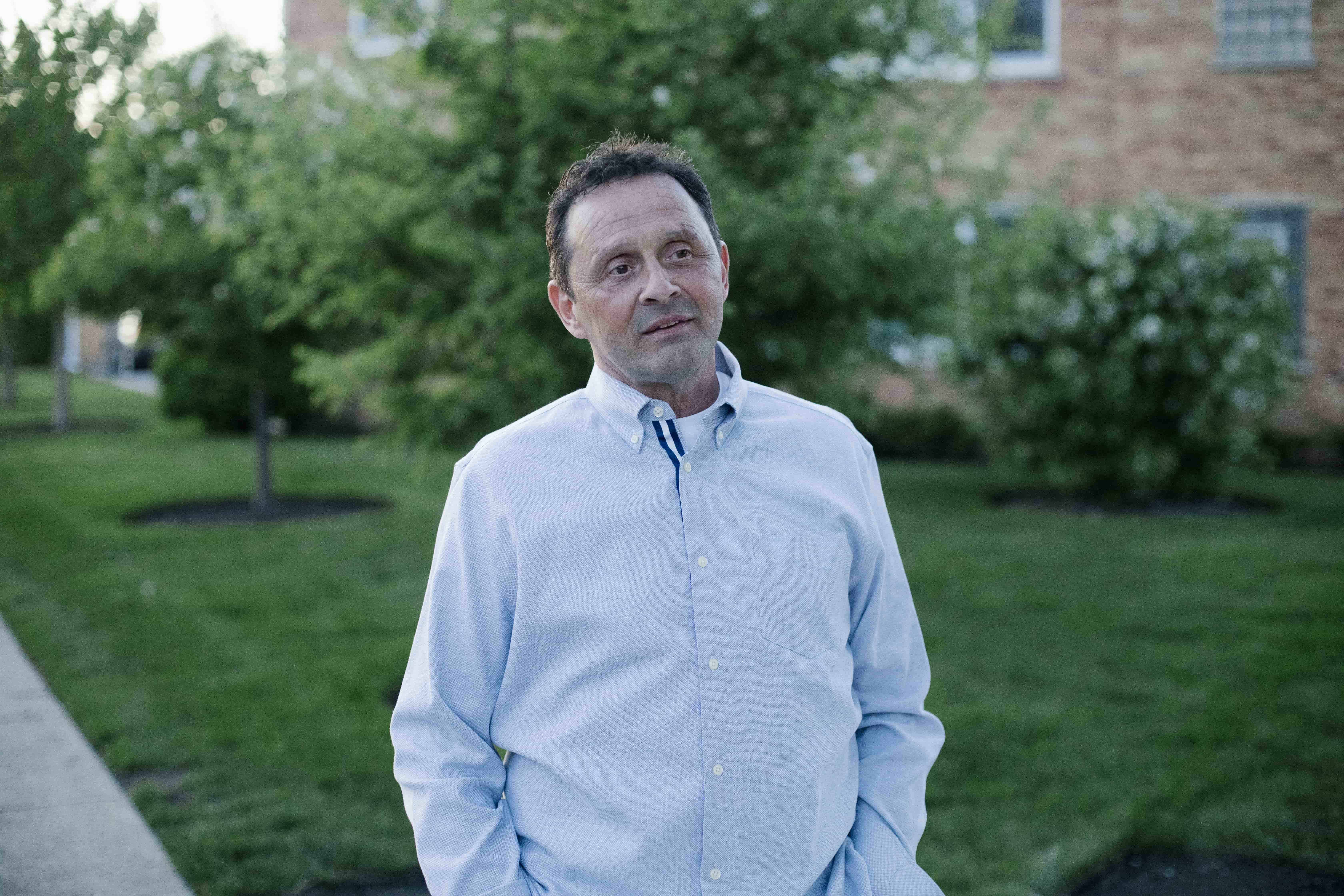Excited Delirium: The controversial syndrome that can be used to protect police from misconduct charges
Buried in the charging documents in the George Floyd murder case is something called "excited delirium." One of the junior officers mentioned it during Floyd's arrest.
We had never heard of excited delirium but discovered it is widely used by police and paramedics to describe a life-threatening syndrome among suspects exhibiting wild behavior and extreme strength, and that it is being used to justify injecting them with a powerful chemical restraint, ketamine. But in the medical world, we found deep skepticism over whether excited delirium is even a real condition and concern about an overreliance on ketamine and the use of excited delirium as a shield to protect police from charges of misconduct.
These issues are at the heart of five federal, state, and city investigations sparked by the death of another black man named Elijah McClain.
John Dickerson: When you hear him in that audio, what do you hear your son going through?
Sheneen McClain: He's being erased. He's being literally erased from existence. They forced his breath out of him. They forced his life out of him.
Sheneen McClain describes her 23-year-old son Elijah as a peaceful person; a musician who played violin for rescued animals. On August 24 last year, he bought an iced tea at a convenience store in Aurora, Colorado. Surveillance video showed him wearing a mask and bowing to customers. He had committed no crime, yet someone called 911 saying McClain was behaving oddly.
[Police video]
Police: Hey, stop right there. Stop. Stop.
Elijah McClain: I have a right to go where I'm going.
Police: Stop. Stop. I have a right to stop you 'cause you're being suspicious.
Elijah McClain: Well, okay.
Police: Turn around. Turn around.
Elijah McClain: No actually …
Police: Stop tensing up. Listen to me, bro.
Elijah McClain: Let go of me. No. Let go of me.
Police: Stop tensing up. We'll go away.
Elijah McClain: No. I am an introvert.
Police: Stop tensing up.
Elijah McClain: Please respect the boundaries that I am speaking.
Police: I'm trying to.
Sheneen McClain: They could've asked questions before they hopped out of the car. They could have treated him like a person instead of an animal.
[Police video]
Elijah McClain: I'm so sorry.
Police: He reached for your gun, dude.
Elijah McClain: I have no gun.
Police: That's why, that's why I tried carotid …
Elijah McClain: I don't do that stuff. I don't do any fighting.
Police: …the other units that are not here.
The three officers – who were joined by at least nine more put McClain in a neck hold, forced him to the ground.
[Police video]
Elijah McClain: I can't breathe correctly 'cause …
Handcuffed, and struggling for air he vomited.
[Police video]
Police: Dude, if you keep messing around I'ma bring my dog out, he's going to dog bite you. You understand me? Keep messing around.
Within minutes, he lost consciousness.
Dave Young: Could they have done things differently? (LAUGH) Absolutely. I wish they would have. Elijah McClain did nothing wrong. So (LAUGH) the officers don't know that, though. The officers know nothing about Elijah McClain.
Adams County District Attorney Dave Young, whose jurisdiction covers Aurora, reviewed all the recordings in the case.
Dave Young: You could see that the officers are at least trying to have a conversation with Elijah McClain.
John Dickerson: But it's a one way conversation.
Dave Young: Absolutely.
John Dickerson: They're not listening to Elijah McClain.
Dave Young: Well, they're not listenin' to Elijah McClain. That's correct. Because they're tryin' to control the situation.
John Dickerson: It goes from zero to 60 pretty quickly. He's pretty articulately saying, 'I'm an introvert. Please don't hurt me. I can't breathe.' And yet the escalation of force continues.
Dave Young: Well, the escalation started when Elijah McClain didn't stop walking. They took it to the next level and say, 'All right. This person's not complying with our lawful commands. Now we're gonna stop him and go hands on.'
The escalation continued. McClain's pleading did too. According to their statements and the district attorney, the police and medical workers said they thought the 140-pound McClain wasn't making sense and showed super strength, signs they took not as a struggle to survive, but as symptoms of excited delirium.
[Police video]
EMS: So when the ambulance gets here, we're going to go ahead and give him some ketamine.
Police: Yep. Sounds good.
And so adhering to their protocol, paramedics injected him with a drug called ketamine, a powerful anesthetic used in hospitals.
Paramedics gave McClain a ketamine dose for someone closer to twice his weight, according to the family's civil rights lawsuit. He suffered respiratory and cardiac arrest and died three days later. His death triggered protests and calls for accountability. But District Attorney Dave Young chose not to file criminal charges against the officers.
Dave Young: Now, if the officers came right out and shot Mr. McClain, it would be an easy decision for me, okay?
John Dickerson: If that's the bar, that seems like an extremely high bar--
Dave Young: Well, if it was the carotid hold, and the pathologist came in and said, "He died from strangulation." And then I would have to look and say, "What the heck is goin' on here? Why did they have to use that amount of force under these circumstances?"
John Dickerson: Let me borrow that sentence from you. What the heck is going on here that they had to use that amount of ketamine? Why isn't that the same thing?
Dave Young: They have a policy in the city of Aurora that says, "Paramedics do this when you have these circumstances." And they follow that policy.
That policy is now on hold and under review in the wake of McClain's death.
The county coroner, who consulted with police in conducting the autopsy, concluded the cause of McClain's death was undetermined because he may have died from a host of possible causes, including excited delirium.
And that possibility, District Attorney Dave Young said, convinced him he could not win a homicide case against the officers.
John Dickerson: Did the excited delirium being included in the autopsy make your job easier or harder in terms of making your final determination?
Dave Young: That's a good question. And the answer to that question is it made it easier. Because-- you're missing a key element to a homicide investigation. You can't file a homicide charge without cause of death.
John Dickerson: The term excited delirium… Not all doctors agree that it even exists as a condition. Do you see problems in that? Or do you think it's an airtight term?
Dave Young: Well, I think it's science. I think there's always, you know, in pathology, there's, uh, a best guess for a lack of a better term.
John Dickerson: When you listen to the audio of the arrest, do you hear him being delirious?
Sheneen McClain: When I hear him on that tape, I hear him completely sane-- completely in his right mind. I truly believe, was in his right mind up until the time he passed out.
Elijah McClain's case is not an isolated one.
A 2018 review of 66 studies and articles referencing excited delirium found it was cited in more than 10% of deaths in police custody. Though it is supported by some in law enforcement and emergency medicine, it is not recognized by the American Medical Association, the World Health Organization or the American Psychiatric Association. Paul Appelbaum, who oversees changes to psychiatry's main diagnostic manual, says excited delirium is bad science, based on faulty studies that grew out of the 1980s cocaine epidemic.
Dr. Paul Appelbaum: excited delirium is a perplexing term from my perspective.
John Dickerson: Perplexing, why?
Dr. Paul Appelbaum: It doesn't correspond to any discreet reality out there in the world.
John Dickerson: So it's a catch-all phrase?
Dr. Paul Appelbaum: It's a wastebasket phrase. It also had utility for the police-- since so many of the early cases, and some of the continuing cases occur-- in police custody and result in death. It's a way of explaining what happened without necessarily bearing responsibility for it. If there's a bad outcome you have a ready excuse at hand.
And as Appelbaum discovered, it is disproportionately associated with one sector of the population.
Dr. Paul Appelbaum: They tend to be young, they tend to be male, and they tend to be African American.
John Dickerson: So what are people applying excited delirium to?
Dr. Paul Appelbaum: Large numbers of people-- who are agitated, and hard to control, often hard for the police to control.
John Dickerson: Should it be sufficient to just say they're hard to control?
Dr. Paul Appelbaum: You might wanna go beyond that and ask why they're agitated. Is this somebody who's intoxicated? Is this somebody who is experiencing a psychotic episode? Or is this somebody who is just afraid, who's been confronted by the police on a dark street at night, minding his own business, and-- is suddenly fearful for his life?
While the debate over the validity of excited delirium continues, even some of its proponents say it has been applied too often, creating a demand for a quick-acting solution and triggering a rise in the use of the drug ketamine, which can be deadly, during arrests.
Dr. Paul Appelbaum: Over the last several years there's been almost an exponential growth in the use of ketamine in exactly these kinds of encounters on the street-- with the police, with the EMTs then called to help subdue the person.
John Dickerson: In Colorado, for example, in the last two and a half years, 900 doses of ketamine. Does that seem excessive?
Dr. Paul Appelbaum: That seems astounding.
Resulting, Colorado data shows, in nearly a 17% rate of complications.
Using ketamine for excited delirium became more widespread after a 2009 paper by the American College of Emergency Physicians and a 2013 study co-authored by Jeffrey Ho, former medical director of EMS at Hennepin Healthcare in Minneapolis. In a blurring of roles, Ho is also a sheriff's deputy in rural Minnesota.
In Minneapolis, a city review found a 3000% increase in the use of ketamine during police encounters from 2010 through 2017 – and the jump has led to mistakes.
Barb Johnson: I was trying to figure out how, when you have a diabetic seizure, do you end up getting ketamine?
Last July, Barb Johnson's son, Max, had a diabetic seizure and his girlfriend, Abby, called 911. Johnson, who spoke on her son's behalf, says the police didn't think it was diabetes but that Max had been using drugs.
Barb Johnson: Three officers had Abby cornered, continually asking her about drugs. Telling her that, "If you-- you know, we don't wanna rip your apartment apart. Where are they?"
John Dickerson: Were drugs involved in any way or in…
Barb Johnson: No. This was a seizure related to hypoglycemia.
As Max emerged from the seizure, confused, agitated and combative, records show paramedics gave him ketamine, a bad choice after seizures, according to his mother, a nurse.
Barb Johnson: It's unacceptable to me. You know, EMS doesn't always have a reliable, accurate witness to tell them what's going on. These folks did.
His girlfriend, Abby, watched as after two doses, Max lost consciousness and was rushed to Hennepin Healthcare – the same facility where Dr. Jeffrey Ho launched ketamine studies. Max had to be put on a ventilator for two days, but ultimately recovered. Hennepin Healthcare declined our request for an interview.
Barb Johnson: I'm literally telling you if this happens to my family, it can happen to anybody.
Ketamine is supposed to be a medical choice by paramedics in Minnesota, not a law enforcement tool wielded by the police.
Joe Baker: If they're fighting with police and they don't want to be placed under arrest, that's not a medical emergency.
Paramedic Joe Baker says he believes it is a tempting way to end rocky police encounters. Baker, who brought a whistleblowers lawsuit after resigning from his job in Woodbury, Minnesota, was called last year to the home of a man suffering a mental health crisis. He says the police requested that he arrive needle-ready, prepared to administer ketamine.
Joe Baker: Each police officer asked me if I had my ketamine drawn up. But I let the police officers know, 'I have it with me. I'm not gonna draw it up. I wanna make sure that the patient's being evaluated.' And they were not happy with that.
Joe Baker said he settled the patient without medication.
Joe Baker: We moved him inside the ambulance. And the interesting part of that was the next thing that that individual said was, "Well, what's the score on-- of the Vikings?" And at that point I realized how much regret I would have if I decided to follow those directives and administer ketamine.
John Dickerson: So you deliver the patient to the hospital. After you do that, what happened?
Joe Baker: I found out from my partner that the police officer was asking why I wasn't willing to play ball and cooperate with them when they were asking me to draw up ketamine. And, so, I found the police officer waiting for me at the fire station after we finished the call.
John Dickerson: Was he trying to make you feel like you had made them less safe by not coming in and administering it?
Joe Baker: Yes.
In a statement, the City of Woodbury said Baker's claims are without merit and its officers followed policy.
Policing by needle – for a highly debated condition of excited delirium – is hard to track because emergency medical services are decentralized, but Baker says the practice overrides the paramedic's duty to care for patients, a point that he said he made to his superiors.
John Dickerson: Did they say you did the right thing?
Joe Baker: No. They told me that I was being insubordinate to that police officer for refusing to administer ketamine.
John Dickerson: How can you be insubordinate in doing something you're-- that they're not supposed to ask you to do?
Joe Baker: That's a very good question.
Produced by Sarah Koch. Associate producer, Chrissy Jones. Broadcast associate, Claire Fahy. Edited by Robert Zimet.
